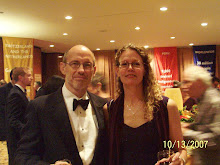Bioterrorism within 5 years.
“Unless the world community acts decisively and with great urgency, it is more likely than not that a weapon of mass destruction will be used in a terrorist attack somewhere in the world by the end of 2013.”
The final result of this six-month study headed by former Senators Bob Graham (D-FL), and Jim Talent (R-MO) correctly faults the Bush administration for failing to devote the same degree of high-level attention and resources to the threat of bioterrorism as it has to nuclear threats. But, then panel’s 13 recommendations falter by suggesting it’s possible to adequately secure dangerous pathogens and tighten oversight of high-containment laboratories by strengthening international organizations. Even with unlimited access to every nation, every laboratory and every cave in the world international organizations will have difficulty in stopping any determined bioterrorist group. Such unlimited access wouldn’t be accepted by every nation and even if it were it still wouldn’t protect us against natural occurring biological pathogens of equal or greater capacity for mass human death and suffering. With the limited resources and space needed to create a biological WMD it’s questionable if even a Nazi like intrusive presence of weapons inspectors would be able to stop a cleaver and committed group from creating the perfect biological weapon capable of targeting a specific ethnic group sharing a similar genetic profile.
The panel’s recommendations for improved bioforensic capabilities and strengthening international organizations would be useful in responding to biological mass murder, but ‘preventing’ a bioterrorist event will require two other approaches not mentioned by the Commission.
First, we must stop making so many enemies in the world. This will require powerful international institutions capable of creating a climate of justice, shared security and protection of basic human rights listed in the Universal Declaration of Human Rights. Such an environment would give poor people as well as the rich a direct incentive and the capacity to reporting any suspicious actors or actions.
Second, new international institutions endowed with the capacity of enforcing globally agreed upon standards of control, intelligence gathering and incident reporting must be created. Without adequate funding and enforcement capacity, such institutions would be as anemic as the UN is today in stopping transnational threats.
In summary, we need to make more friends, less enemies, and globally enforceable world laws.


0 Comments:
Post a Comment
<< Home